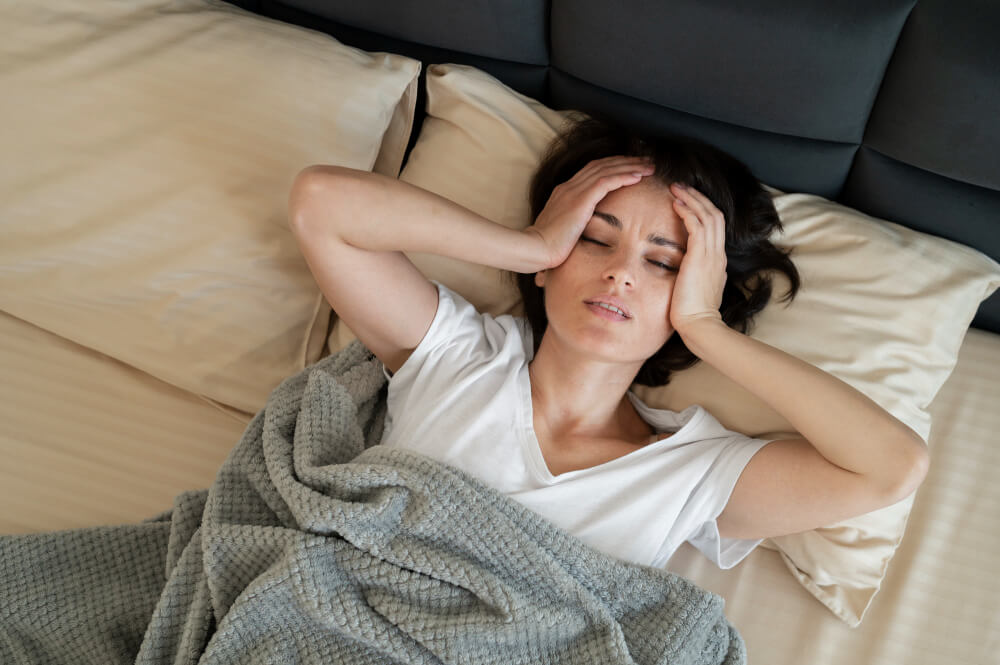Insomnia Cure? No. But Here’s How to Finally Fall Asleep
Staring at the ceiling, counting sheep that stubbornly refuse to jump, the frustration of insomnia is a universal experience. You’re exhausted, yet sleep feels miles away. This nightly battle with insomnia can leave you drained, irritable, and significantly impact your daily life.
But here’s the good news: while there isn’t a one-size-fits-all cure for insomnia, there are effective strategies to help you finally fall asleep and achieve restful nights. This article will unveil the mystery of insomnia, exploring its causes and offering practical solutions to break free from its grip.
Unveiling the Mystery: Understanding Insomnia
Insomnia is a sleep disorder characterized by difficulty falling asleep, staying asleep, or experiencing poor quality sleep that leaves you feeling unrested. It can be a short-term issue triggered by stress or a chronic condition affecting your overall health and well-being.
There are two main types of insomnia:
- Short-term insomnia: This temporary disruption in sleep patterns can last for days or weeks and is often caused by stress, life changes, travel, or illness.
- Chronic insomnia: This long-term condition occurs when sleep problems persist for three nights a week for at least three months. It can be linked to underlying medical conditions, mental health issues, or poor sleep hygiene.
Peeling Back the Layers: Causes of Insomnia
The causes of insomnia are multifaceted and can be categorized into three main areas:
- Psychological Factors: Stress, anxiety, depression, and worry can significantly impact sleep quality. Racing thoughts and ruminating about daily problems can keep you awake at night.
- Medical Conditions: Certain medical conditions like chronic pain, arthritis, heartburn, and neurological disorders can disrupt sleep patterns. Additionally, some medications can have side effects that interfere with sleep.
- Lifestyle Habits: Poor sleep hygiene, irregular sleep schedules, excessive caffeine or alcohol intake, screen time before bed, and an uncomfortable sleep environment can all contribute to insomnia.
Understanding the underlying cause of your insomnia is essential for developing an effective treatment plan. If you suspect a medical condition is disrupting your sleep, consult your doctor for a proper diagnosis and treatment.
Breaking Free: Strategies for Falling Asleep and Staying Asleep

While a magic cure for insomnia might be elusive, there are a variety of strategies you can implement to improve your sleep quality:
1. Practice Good Sleep Hygiene:
- Develop a Regular Sleep Schedule: Go to bed and wake up at the same time each day, even on weekends. This helps regulate your body’s natural sleep-wake cycle.
- Create a Relaxing Bedtime Routine: Wind down before bed with calming activities like taking a warm bath, reading a book, or practicing relaxation techniques such as deep breathing or meditation. Avoid stimulating activities like watching TV, working on your computer, or using electronic devices for at least an hour before bed.
- Optimize Your Sleep Environment: Ensure your bedroom is dark, quiet, cool, and clutter-free. Invest in blackout curtains, an earplug mask, and consider a comfortable mattress and pillows.
2. Manage Stress and Anxiety:
- Cognitive Behavioral Therapy for Insomnia (CBT-I): This evidence-based therapy helps identify and challenge negative thoughts and behaviors that contribute to sleep problems. A therapist can teach you relaxation techniques and strategies to improve sleep hygiene.
- Relaxation Techniques: Regularly practicing relaxation techniques like deep breathing, meditation, or progressive muscle relaxation can help calm your mind and body before sleep.
- Exercise Regularly: Regular physical activity can improve sleep quality. However, avoid strenuous workouts close to bedtime.
3. Address Underlying Medical Conditions:
- If you suspect a medical condition is contributing to your insomnia, consult your doctor. They can diagnose the underlying issue and recommend appropriate treatment.
4. Limit Stimulants:
- Caffeine: While caffeine provides a temporary energy boost, its effects can last for hours. Avoid caffeine intake in the afternoon and evening.
- Alcohol: While alcohol may initially make you feel drowsy, it disrupts sleep patterns later in the night, leading to fragmented sleep and reduced quality of rest.
5. Create a Sleep Sanctuary:
- Light Exposure: Darkness signals to your body that it’s time for sleep. Invest in blackout curtains or an eye mask to minimize light exposure in your bedroom.
- Temperature: A cool and comfortable room temperature is ideal for sleep. Aim for a temperature between 60-67 degrees Fahrenheit.
- Noise Reduction: Minimize noise distractions by using earplugs or a white noise machine.
6. Seek Professional Help:
- If you’ve tried these strategies and continue to struggle with insomnia, consult a sleep specialist.

